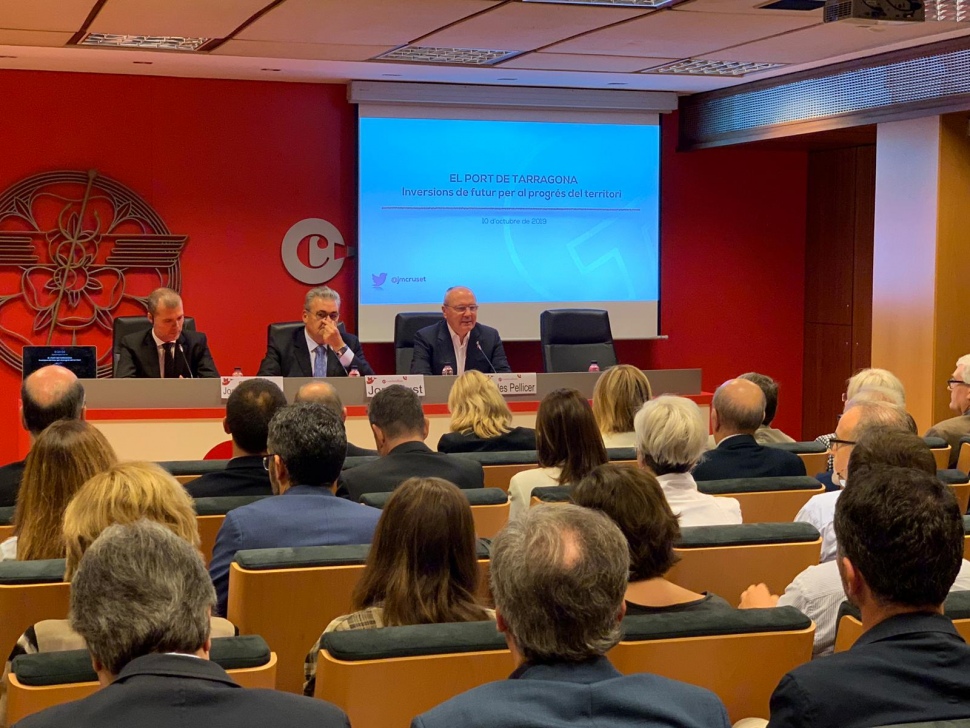Cruset asserts the need to have a true perception of our potential as a territory
-
Published in 2019
The president of the Port of Tarragona gave a speech to the Reus Chamber of Commerce as part of the Esmorzar Cambra (“Chamber Breakfast”) sessions
The president of the Port of Tarragona, Josep Maria Cruset, was the speaker this Thursday 10 October at the 8.30 am Esmorzar Cambra (Chamber Breakfast) session organised by the Reus Chamber of Commerce.
The talk, which a was given in the corporate building conference room, was presented by the president of the Reus Chamber of Commerce, Jordi Just, and the mayor of Reus, Carles Pellicer.
Mr Cruset had been invited to give a talk on “The Port of Tarragona: future investments for the progress of the territory”. The Port of Tarragona is one of the most important infrastructures in Spain and the Mediterranean. Its Master Plan (2015-2035) includes the infrastructures to be installed in the Port in the near future.
In his talk, Mr Cruset emphasised the future investments for the progress of the territory and asserted the “need to have a true perception of our potential as a territory”.
The president of the Port took advantage of his speech to explain the execution of various projects aimed at positioning of the port as a benchmark in the areas of intermodal logistics, containers and chemicals, as well as in the competitive world of holiday cruises.
According to Mr Cruset, the Port of Tarragona’s immediate objectives include the new Logistics Activities Zone (ZAL), an area of one million square metres designed to expand the warehousing and cargo transport areas located in the municipality of Vila-seca; the ‘Puerto Centro’ intermodal terminal in the municipality of Guadalajara and Marchamalo; the new Balears Wharf cruise ship terminal; the commitment to improve of road and rail communications; cargo traffic diversification, and the Xarxa 2000 nature area, all investments designed to generate more economic activity in the region.
Mr Cruset ended by announcing a study into the logistics of grain traffic in the port’s hinterland, with the objective of establishing a dry port to promote the transport by rail of most of the 30,000 tons of grain that leave the port every day.
Mr Cruset is committed to a port with a sustainable economy that will contribute to improving the planet and the quality of life of the people who live on it.
